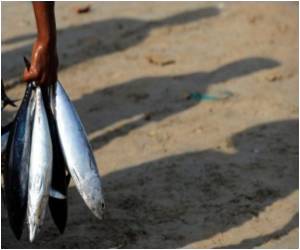Changes in ocean and climate systems could lead to smaller fish, warned a new study.

The researchers used computer modeling to study more than 600 species of fish from oceans around the world and found that the maximum body weight they can reach could decline by 14-20 per cent between years 2000 and 2050, with the tropics being one of the most impacted regions.
"We were surprised to see such a large decrease in fish size," said the study's lead author William Cheung, an assistant professor at the UBC Fisheries Centre.
"Marine fish are generally known to respond to climate change through changing distribution and seasonality. But the unexpectedly big effect that climate change could have on body size suggests that we may be missing a big piece of the puzzle of understanding climate change effects in the ocean," he noted.
This is the first global-scale application of the idea that fish growth is limited by oxygen supply, which was pioneered more than 30 years ago by Daniel Pauly, principal investigator with UBC's Sea Around Us Project and the study's co-author.
"It's a constant challenge for fish to get enough oxygen from water to grow, and the situation gets worse as fish get bigger," explained Pauly.
Advertisement
This study highlights the need to curb greenhouse gas emissions and develop strategies to monitor and adapt to changes that we are already seeing, or we risk disruption of fisheries, food security and the way ocean ecosystems work.
Advertisement
Source-ANI









